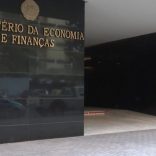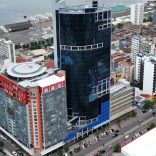Mozambique: Government retains up to 25% of various budgeted expenditures for this year
Covid-19: NGO accuses Mozambican government of “economic exclusion”

Maputo. [File photo: Lusa]
Mozambican non-governmental organisation Centre for Democracy and Development (CDD), says the government’s decision to condition Covid-19 financial support for the informal sector on prior registration with the Tax Authority (AT) to be tantamount to “economic exclusion”.
On May 28, Mozambican Minister of Economy and Finance Adriano Maleiane said in parliament that “there will be no direct support for the informal sector, until they register with the Tax Authority”.
In an analysis entitled “Requiring formalisation of the informal as a condition for accessing government support is promoting economic exclusion”, the CDD assesses the executive’s demand as unrealistic in the context of the Covid-19 emergency.
“How does the Minister of Economy and Finance thinks he will be able to formalise all informal operators at a time when the country faces the Covid-19 pandemic?” the civil society organisation asks.
The CDD recalls that 86.71% of the labour force in Mozambique, mostly young people and women, is in the informal sector, largely because of the state bureaucracy involved in accessing the formal sector of the economy.
“The bureaucracy of public administration is one of the factors that contribute to the high levels of informality in the national economy,” it states, citing a World Bank study in support.
In addition to the excessive documentation required for registering a business, including some requirements not provided for by law, anybody wanting to formalise their economic activity in Mozambique also faces with high registration costs, the CDD points out.
On the other hand, imposing the formalisation of informal operators in the midst of a pandemic crisis would expose millions of people to infection, due to the travel required to access public administration in the country.
The CDD says that millions of Mozambicans are forced to work in the informal sector because of chronic and structural weaknesses, including the poor productive capacity of companies and poor economic governance.
“The informal sector which the Mozambican government is refusing social support comprises 11 million people, against the just 1.1 million in the formal sector,” the analysis points out.
Meanwhile, the informal sector contributes than mare 60% of gross domestic product (GDP).
The Mozambican government announced in May that it would use 600 million meticais (€7.6 million) from the National Social Security Institute (INSS) to help micro, small and medium-sized companies face the impact of the Covid-19.
In March, the Bank of Mozambique announced a credit line of US$500 million (€460.6 million) to be channelled to commercial banks to make available to companies, within the scope of Covid-19 counter-measures.
Also within the scope of support for companies in the face of the new coronavirus, the Assembly of the Republic scrapped value added tax on sugar, cooking oil and soap.
Mozambique has been in a state of emergency since April 1, extended twice, now until June 29.
Mozambique has been in a state of emergency since April 1st, with amusement and leisure facilities closed, all types of events and meetings prohibited, and the public recommended to stay at home unless they have compelling reasons to go out, such as work or essential errands.
Capacity on public transport is limited and the use of masks mandatory. Schools are closed and the issuing of entry visas has been suspended.
Mozambique has 424 cases of infection with the new coronavirus, with two deaths and 127 said to have fully recovered.
The Covid-19 pandemic has already claimed more than 400,000 lives and infected more than 6.9 million people in 196 countries and territories, according to the latest figures from the French news agency AFP.













Leave a Reply
Be the First to Comment!
You must be logged in to post a comment.
You must be logged in to post a comment.